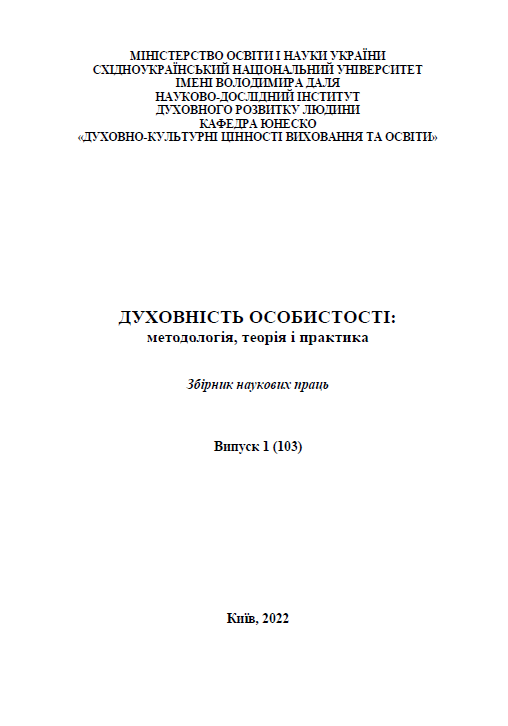PEDAGOGICAL IMPICATIONS OF L. VYGOTSKY’S CULTURAL-HISTORICAL THEORY
DOI:
https://doi.org/10.33216/2220-6310-2022-103-1-233-246Keywords:
Сultural-historical theory, interpsychic and intrapsyhic, сultural development, social environment, sign theoryAbstract
The essence and significance of the cultural and historical theory of L. Vygotsky are considered in the article. In the conditions of cultural diffusion the trends of multiculturalism as a counterbalance to these processes are actualized. Hence, L. Vygotsky’s theory acquires special meaning and significance for domestic pedagogy. There cannot be a united society where each generation has its own values. This thesis is the significance of the cultural-historical theory of L. Vygotsky, who revealed the social nature of the formation of the mental qualities of a person. Pedagogical model or technology should be based on a cultural and historical basis, which in turn, provides support for the formation a general concept of education in society. Appeal to the cultural-historical theory of L. Vygotsky is another step towards understanding the patterns of development of pedagogy, the formation of the methodological basis of pedagogical science in the modern socio-cultural space. According to the concept of L. Vygotsky, the cultural development of a child involves a process where biological characteristics (ability to remember, think) are transformed into social one and they are internalized into psychological ones, modifying the mechanism of the processes of manifestation and development of memory and thinking. L. Vygotsky proves that reflex mechanisms recede into the background, social- cultural become a priority. It is noted that not every social relationship, social interaction can become an internal higher mental function but only one that appears on the stage as a category, as a unit of drama. Social relations form pattern and behavior models.
Social relations do not always mean collective relations. Sociality can manifest itself as a source of personal experience. The concept of sign where consciousness manipulates symbols and definitions. L. Vygotsky’s cultural-historical theory is an example of cultural relativism that can be opposed to modern processes of cultural diffusion.

